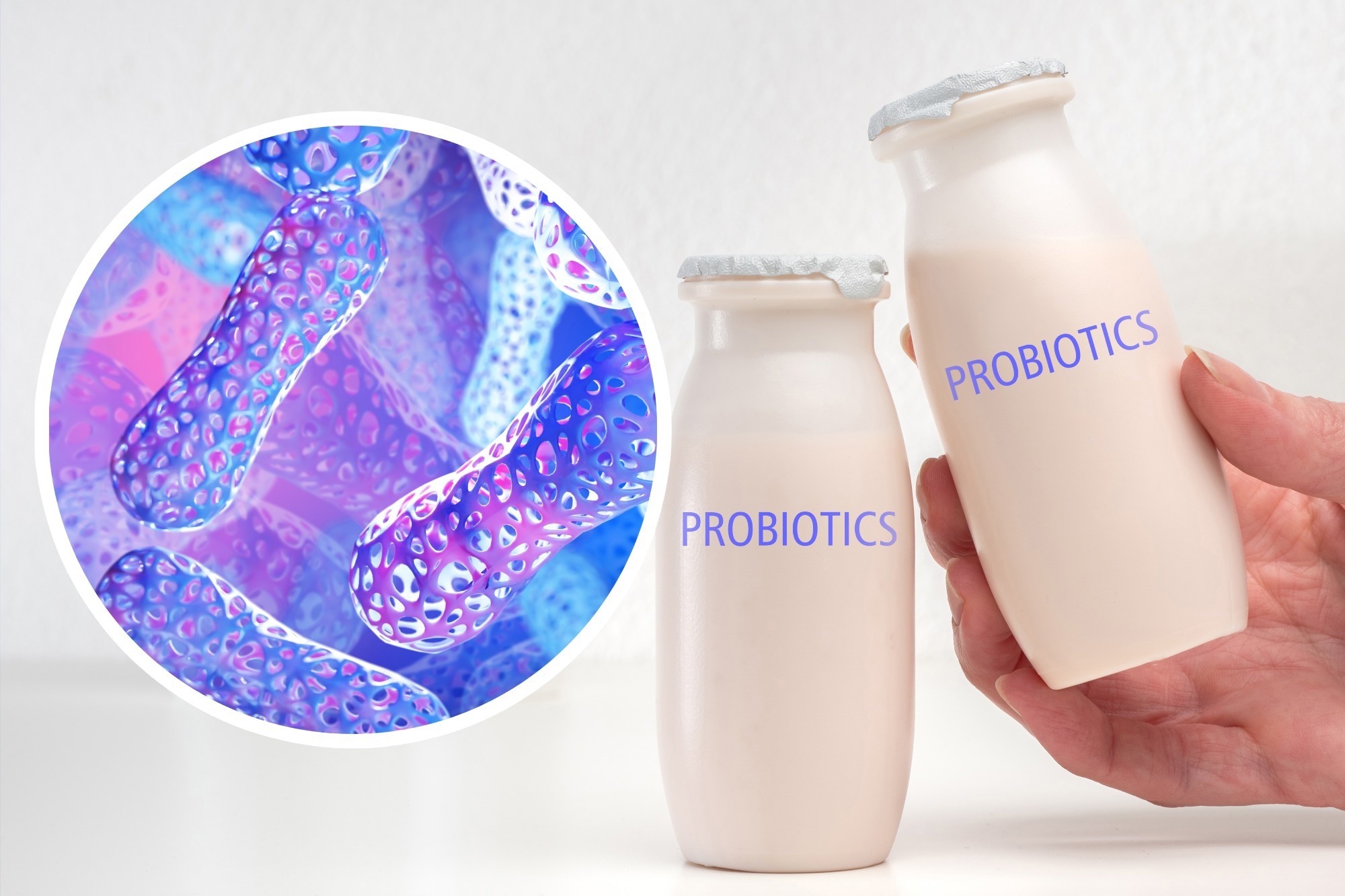 Study: Probiotic supplementation during antibiotic treatment is unjustified in maintaining the gut microbiome diversity: a systematic review and meta-analysis. Image Credit: FOTOGRIN/Shutterstock.com
Study: Probiotic supplementation during antibiotic treatment is unjustified in maintaining the gut microbiome diversity: a systematic review and meta-analysis. Image Credit: FOTOGRIN/Shutterstock.com
Effects of antibiotics on gut flora
Antibiotics are known to alter gut microbiota qualitatively, significantly decreasing the densities of some species and, in extreme cases, driving them to extinction.
This results in low-diversity-gut-microbiome and allows potentially pathogenic bacteria, including Staphylococcus aureus, Clostridioides difficile, and Clostridium perfringens, to dominate gut bacterial communities. This imbalance, called ‘dysbiosis,’ has been associated with numerous health conditions such as neurological dysfunction, inflammatory bowel syndrome, and cancer.
Gut microbiota usually recovers normalcy without medical intervention. However, the recovery duration can vary dramatically given the dose, spectrum, and duration of antibiotic treatment, patient age, and, most importantly, the time between successive antibiotic courses.
Previous research has estimated two weeks for this recovery in healthy young adults, but this increases drastically if a new antibiotic course is administered before normalcy is achieved.
Probiotics, preparations containing live bacteria, yeast, or combinations of these microbes, are often prescribed to prevent or reverse dysbiosis. Research has investigated the clinical outcomes of probiotic intake during treatment, with varying reports on their efficacy in microbiota restoration post-treatment. However, their impacts on fecal microbiota diversity remain lacking.
Significant inter-individual differences in gut flora species have historically confounded ‘normal gut microbiota composition’ definitions, making establishing standardized measurement methods challenging.
Researchers and clinicians borrow from ecological diversity measures, specifically α- and β-diversity indices, to report gut community abundance and diversity. α-diversity is the diversity within a sample, while β-diversity is the diversity between different sample sets.
About the study
In the present study, researchers employed meta-analytical approaches to evaluate the effects of probiotic supplements in maintaining or restoring gut microbiota diversity during antibiotic treatment.
They began by collating 19,596 records from the Medline, Embase, and Cochrane Central Register of Controlled Trials (CENTRAL) databases. They then used the PICO-S format (population, intervention, comparison, outcome, and study design) to screen the studies.
Title, abstract, and full-text screening identified 15 publications for the qualitative synthesis (review) and five for the quantitative (meta-analysis). The review comprised 887 patients, while the meta-analyses reported 335 patients. Researchers extracted study characteristics, cohort details, antibiotic and probiotic descriptions, and outcomes from each study.
Shannon diversity indices and observed Operational Taxonomic Units (OTUs) were subsequently calculated for the quantitative analyses.
Finally, bias and certainty assessments were conducted using the Cochrane risk-of-bias (RoB2) and the Grading of Recommendations, Assessment, Development and Evaluation (GRADE) tools, respectively.
Study findings
The present review and meta-analysis did not reveal that probiotic consumption can prevent antibiotic-induced dysbiosis.
Gut microbiome Shannon diversity between cases (patients consuming probiotics) and controls (those not consuming probiotics) were, on average, just 0.23 (not significant), with only one of the five studies included showing a statistical difference between cohorts. OTU results were similar, with no observable differences between case and control cohorts.
Three of the nine studies reporting α-diversity indices did show improvements in α-diversity indices between the case and groups on probiotic supplementation. Still, these signals were weak and remained unexplained.
Only one of the five studies reporting β-diversity showed improvements for case cohorts. However, these were not significant enough to merit the positive reputation that probiotics currently enjoy.
Taxonomic analyses of gut microbiome revealed that at the phylum level, Firmicutes and Bacteroidetes representation decreased substantially and were replaced by Proteobacteria following antibiotic administration.
These results were consistent irrespective of the cohort tested. These alterations were spontaneously rectified in a maximum of 56 days, with probiotics not contributing to the hastening of normalcy.
At the genus level, probiotic supplementation was shown to maintain the level of the Bifidobacterium genus, which in the control group decreased during antibiotic treatment. It took a maximum of 35 days for individuals not consuming probiotics to return to pre-treatment levels.
Conclusions
In the present study, researchers utilized a systematic approach and a separate meta-analysis to evaluate the benefits of probiotic consumption on gut microbiota maintenance during antibiotic treatment.
Their results debunk the notion that probiotic consumption during treatment can prevent or reverse alternations to the gut flora, a characteristic outcome of antibiotic administration.
No changes in gut microbiota were observed between patients who consumed probiotics and those who did not in the Observed Operational Taxonomic Units meta-analysis. Shannon diversity indices reported similar results, with only one study reporting slight improvements in diversity measures on probiotic consumption.
Qualitative analysis revealed that three-of-nine and one-of-five studies improved α- and β-diversity indices, respectively. However, these were temporary and not notable enough to recommend probiotics as a therapeutic remedy for dysbiosis.
“The tendency of microbiome restoration after a 3–8-week follow-up period, regardless of probiotic supplementation and remission of the differences between the intervention and control groups, challenges the questions on the benefits of routine probiotic supplementation during antibiotic treatment.”